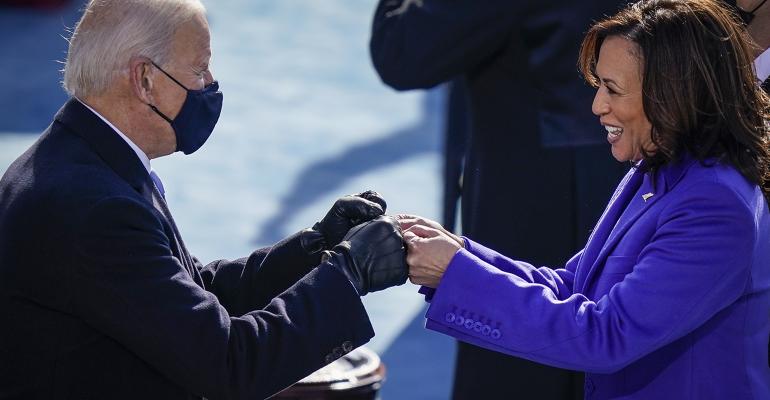On this most recent Inauguration Day, my family had just completed the first week of a strict (and fortunately unnecessary) quarantine period. Trapped in the house during a chilly January, my spouse and I set up a laptop on our kitchen table so we could watch the inauguration with our three young children over a lunch of chicken nuggets, apple slices and strawberry yogurt.
Amanda Gorman’s poem broke through my grumpy, frazzled disposition. Her words pulled me back up to the surface, able to breathe fresh air for the first time in far too long.
Gorman’s “The Hill We Climb” set a lofty bar for the new administration, with a clear call to action for all that stands before us.
To that end, the Biden-Harris White House has already indicated its intention to invest in America’s full potential. Here are three signals I find most hopeful:
- The Biden-Harris administration filled key economic positions with leaders in the racial equity and social justice space. According to a statement from the Biden-Harris transition website, “The teams have been crafted to ensure they not only reflect the values and priorities of the incoming administration, but reflect the diversity of perspectives crucial for addressing America’s most urgent and complex problems.” During the transition, social justice investors were energized to spot Bill Bynum (president and CEO of Hope Credit Union based in Itta Bena, Miss.) on the Agency Review Team for the Consumer Financial Protection Bureau.
The administration has continued to fill key roles with leaders who are deeply knowledgeable of the challenges faced by people and places that are often overlooked by traditional investors. For instance, Justin Maxson (previously CEO of the Mary Reynolds Babcock Foundation) was named deputy under secretary for rural development at the United States Department of Agriculture. Another key hire is Noel Andrés Poyo (previously executive director of the National Association for Latino Community Asset Builders) as deputy assistant secretary for community economic development, Office of Domestic Finance at the Department of Treasury.
By tapping leaders with deep expertise in poverty alleviation and economic justice, the Biden-Harris administration signaled a clear intention to prioritize investments in communities that are more likely to have been shut out from access to capital.
- Early Executive Orders to End Policies that Enable Discrimination in Housing and Lending. Recognizing the critical need to address inequities in housing finance, Biden tasked the U.S. Department of Housing and Urban Development to review two key rules implemented during the previous administration. The first rule, which has been in place since 1968 but was relaxed under former Housing Secretary Ben Carson, addresses discrimination in rental housing and mortgage lending. The second rule to be reviewed addresses how cities assess and enforce efforts to reduce segregation.
While review is ongoing, Biden sent a clear signal that finance and investment is required to address housing inequities in America. “Housing is a right in America, and homeownership is an essential tool to wealth creation and to be passed down to generations,” Biden said as he signed the order.
- Biden Administration Began Walking Back a Controversial Anti-ESG Rule at the Department of Labor. In November 2020, the Department of Labor finalized a rule that made incorporating environmental, social and governance (ESG) considerations in retirement plans more difficult. The rule significantly curbed potential growth in the impact investing industry, including social justice investing. The rule took effect on Jan. 12, 2021. A few days later, Biden ordered an immediate review of the rule as part of his umbrella review of all policies addressing environmental regulations. While it may take up to 18 months to revise the rule completely, the Biden administration appears to be making a very public response to a rule that was quietly pushed through. Depending on how it all shakes out, Biden’s actions may create a lasting precedent for government regulations around ESG investment considerations. Once finalized in a transparent manner, it will be difficult to roll back.
While we’re only three weeks into the administration, there are strong indications that social justice investors will continue to find receptive partners in the Biden-Harris White House. For those brave enough to peek out of their COVID pods, a light can be discovered.
Andrea Longton, CFA, is the founder of The Social Justice Investor. You can follow Andrea on LinkedIn and Twitter.





